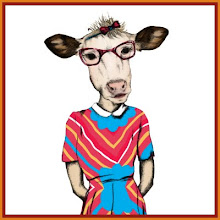 Afro-Leo is pleased to bring you a guest post by Isaac Rutenberg, PhD, Patent Agent at Bozicevic, Field & Francis LLP in San Francisco, CA, USA. If you would like to contact Isaac directly, he can be reached at rutenberg@bozpat.com.
Afro-Leo is pleased to bring you a guest post by Isaac Rutenberg, PhD, Patent Agent at Bozicevic, Field & Francis LLP in San Francisco, CA, USA. If you would like to contact Isaac directly, he can be reached at rutenberg@bozpat.com.
Is intellectual property always harmful to poor people? Plumpy’nut has been cited as an example that supports the case against allowing patent rights in matters of humanitarian aid. On the contrary, Plumpy’nut is a shining example of how proper use of intellectual property protections could have significantly enhanced international aid and development work.
A recent article in the NYTimes describes the row that has developed over Plumpy'nut. In short, Plumpy'nut is a revolutionary peanut-based product with the potential to end or significantly reduce severe acute child malnutrition. Developed by Dr. Andre Briend, a "crusading pediatrician" who became tired of traditional (frequently unsuccessful) solutions to acute malnutrition, Plumpy'nut is a simple product that is remarkably effective and practical.
So why the row? Turns out that the Plumpy'nut formulation has been patented in 38 countries, including the US, France, and much of Africa. The owner of the patent, the French company Nutriset, appears to be bent on commercializing not just the miracle product but the entire process of combating acute malnutrition. Nutriset and Nutriset's collaborators (including a US for-profit company manufacturing Plumpy'nut in New Jersey for distribution to USAID) have defended their approach and their product, taking steps to prevent others from producing similar products. Criticism of Nutriset has been unsurprisingly harsh: non-profits worldwide say that Nutriset is trying to profit on the backs of the poorest and most vulnerable children. Inevitably, there is the claim that intellectual property is to blame for this disaster.
I say, not so fast. The NYTimes article says that Nutriset obtained the patent rights because Dr. Briend "signed a consulting agreement" with Nutriset after developing Plumpy'nut, since he "never knew anything about manufacturing food." This is somewhat vague, but according to a United States Patent and Trademark Office database, Dr. Briend and a co-inventor assigned (i.e., sold) the patent to Nutriset. This left Nutriset entirely in charge of the patent – Dr. Briend has no say in how it is used.
Had Dr. Briend kept control of the patent, things might look very different today. If his intentions were truly humanitarian, he could have used the patent to benefit the public in much the same way that open source software uses copyright protection. Contrary to popular belief, open source software is protected by copyright. The copyright owners (e.g., the software authors) have simply said that they are willing to grant an open license to anyone who would like to use the software, subject to some conditions. One important condition is that any advances made on the software must also become open source, so the software continues to improve but always remains freely available for use. If there was no copyright protection of the original open source software code, the open source system would not work.
Similarly, Dr. Briend should have kept his patent, and used it to ensure that anyone can produce Plumpy'nut. In particular, local producers in the countries that need it most would not then be reliant on USAID or the UN food relief programs as their sole source of the miracle product.
Although the entire story may be more complicated, one should not blame either Nutriset or patents in general for these events. The problem is that intellectual property and the implications of certain acts are often not fully understood by scientists and especially by the general public.
Had Plumpy'nut been developed by a multinational corporation that never made any pretenses of putting humanitarian interests above profit, then there would be a stronger case for mandating government intervention to make the formulation accessible to all. But this appears to be a case where one individual could have taken steps early on to secure patent rights and ensure universal availability of a life-saving miracle product.








2 comments
Write commentsThere is no Nutriset "collaborator" in New Jersey. Tabatchnick Fine Foods manufactures a ready-to-use Therapeutic Food (RUTF) called Nutty Butta. Not only is Tabatchnick not a collaborator with Nutriset, they are actually in a legal wrangle with Nutriset. Nutriset has collaborated with Industrial Revelation, a Rhode Island-based non-profit, to form a new non-profit called Edesia that is the US licensee for Nutriset products. Two other US non-profits (Mama Cares Foundation (CA) and Breedlove (TX)) have jointly filed a lawsuit against Nutriset. Other than Edesia, MANA Nutritive Aid Products (http://www.mananutrition.org) in Georgia is the only RUTF producer in the United States with its own production facility. MANA is also starting an RUTF production facility in Rwanda.
ReplyI just read that NYTimes article too, and had the same thoughts about opensource software. My impression from the article was that Dr. Briend didn't know what he was doing (and doesn't care about/for money or fame.) Yes, he SHOULD have kept the rights, if only to protect them from being walled up inside a for-profit company.
ReplyThe main indicator that Nutriset is on the wrong side of long-term development is their hesitancy to produce the stuff in Africa. Supposedly, they are building one facility in Tanzania later this year, but we'll see if that happens. Will they be willing to scale up African production and scale back US and European production? Not bloody likely, if they have investors to report back to.
Which is why they should switch to a social business model ala Mohamed Yunus as soon as possible.